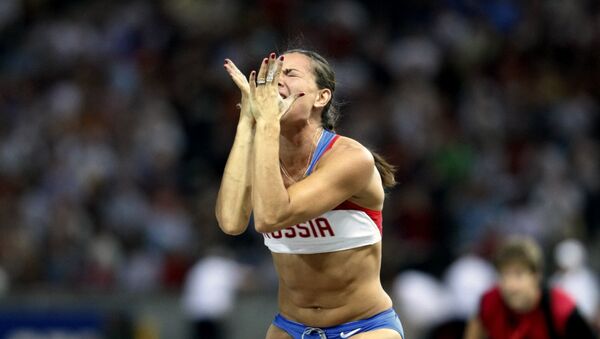The Spartans
One of the first cases of disqualification occurred in Ancient Greece in 420 BC, at the 90th Olympic Games. The Spartans were suspended from the games after they violated the ban to end wars and performed military maneuvers during the competition.
The ancient athletes, however, had a choice; at first the Spartans were merely fined. It only came to disqualification after the ancient state refused to pay the bills.
One of the athletes, the charioteer Lichas, tried to evade the ban and took part in a race on the Greek island of Thebes and came to the finish line first. However, he did not stay Olympic champion for long — as soon as it was discovered that he was a Spartan his victory was annulled.
John Carpenter (1908)
British runner Wyndham Halswelle won the gold medal in the men's 400-metre race during the London Olympics in 1908.
American John Carpenter had originally won the event, but he was disqualified for blocking Halswelle – a move that was legal under American rules, but not under the British rules.
A second race was called on but Carpenter and his American teammate, John Taylor, decided to protest the decision by not running. As a result, Halswelle was the only medalist in the event.
The 1916 Summer Olympics
The 1916 Summer Olympics were to have been held in Berlin, Germany, but were cancelled because World War I started.
Bertil Sandstrom (1932)
1936 Summer Olympics
In 1931 the IOC selected Germany's capital city Berlin as the host city of the 1936 Summer Olympics.
However, after Adolf Hitler's rise to power in 1933, the plans for the Olympic Games became intertwined with the politics of the Nazi regime.
Adolf Hitler regarded the event as “his” Olympics and tried to exploit the Games for propaganda purposes, with the aim of showcasing post-First World War Germany. In 1936, a number of notable politicians and organizations called for a boycott of the Summer Olympics, while other campaigners called for the games to be relocated.
African Disqualification (1962)
The longest suspension in the history of the Olympic movement was seen by South Africa and Zimbabwe.
South Africa was suspended by the IOC from participating in the Summer Olympics in 1962 after the adoption of the UN General Assembly resolution on apartheid. The country returned to the Olympic Games only in 1992 after a 28-year hiatus.
Zimbabwe (then Rhodesia) was disqualified for expressing its will to follow an independent policy from the UK. Zimbabwe was blocked from the Olympics in 1972, when civil war broke out between the British Crown supporting government troops and fighters for the country's independence.
London recognized the independence of Zimbabwe in 1980 and the sanctions against it were lifted.
Indian Disqualification (2012)
India became the largest country that has ever been removed from the Olympic Games. The IOC suspended the membership of the Indian National Committee in December 2012 after the intervention of the state in its electoral process.
The Indians still took part in the Games as independent athletes.
Olympic status to the second-highest populated country in the world was returned on February 11, 2014, during the Olympic Games in Sochi.
Yuri Fedorenko (2007)
The Russian powerlifting national team was disqualified from competition in October 2007 due to doping allegations.
The disqualification was to last for a year, but was canceled just after a few months. Alas, soon again, Russian sportsman, Yuri Fedorenko, was caught using a banned diuretic. The sportsman was suspended from competing for 2 years and the entire team — for six months.
In 2009, three athletes were caught doping again, but this time the national team was not disqualified, however, the offenders were.






